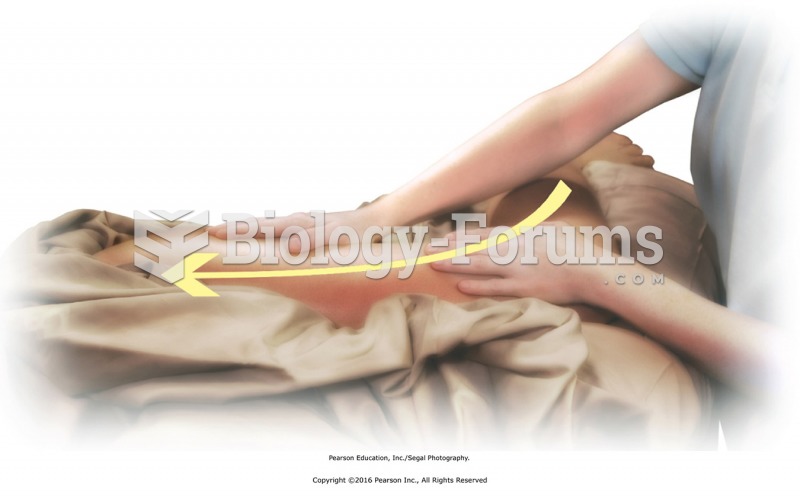|
|
|
Long-term mental and physical effects from substance abuse include: paranoia, psychosis, immune deficiencies, and organ damage.
In 1885, the Lloyd Manufacturing Company of Albany, New York, promoted and sold "Cocaine Toothache Drops" at 15 cents per bottle! In 1914, the Harrison Narcotic Act brought the sale and distribution of this drug under federal control.
According to the American College of Allergy, Asthma & Immunology, more than 50 million Americans have some kind of food allergy. Food allergies affect between 4 and 6% of children, and 4% of adults, according to the CDC. The most common food allergies include shellfish, peanuts, walnuts, fish, eggs, milk, and soy.
People who have myopia, or nearsightedness, are not able to see objects at a distance but only up close. It occurs when the cornea is either curved too steeply, the eye is too long, or both. This condition is progressive and worsens with time. More than 100 million people in the United States are nearsighted, but only 20% of those are born with the condition. Diet, eye exercise, drug therapy, and corrective lenses can all help manage nearsightedness.
Medication errors are three times higher among children and infants than with adults.
 Apply effleurage to hamstring muscles with fists from just above the popliteal fossa to the superior ...
Apply effleurage to hamstring muscles with fists from just above the popliteal fossa to the superior ...
 Warming effleurage to thigh muscles. Use reinforced palm over palm method to apply deeper pressure ...
Warming effleurage to thigh muscles. Use reinforced palm over palm method to apply deeper pressure ...
 Massage extensor muscles and apply transverse friction over tendons. Knead and press into forearm ...
Massage extensor muscles and apply transverse friction over tendons. Knead and press into forearm ...




